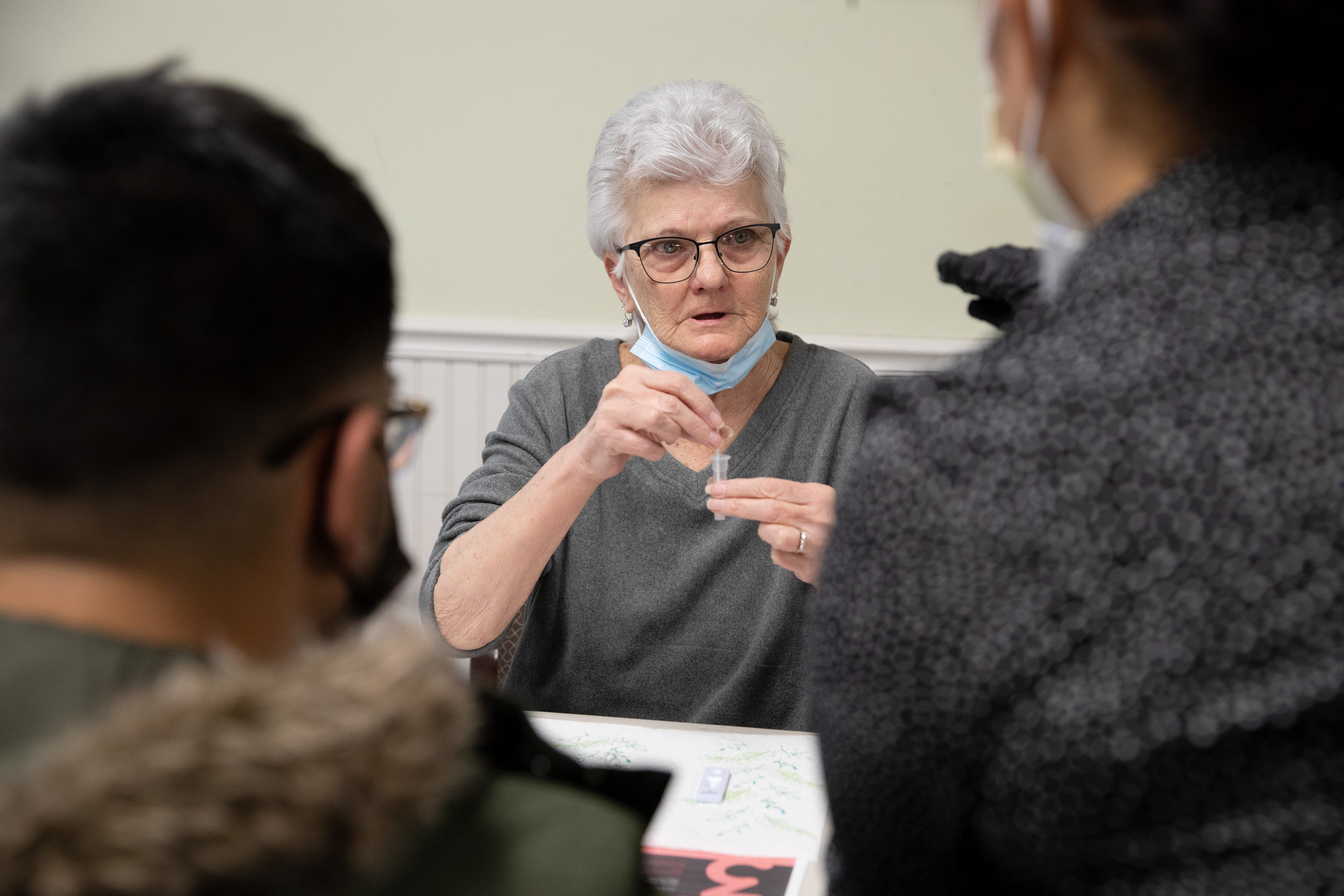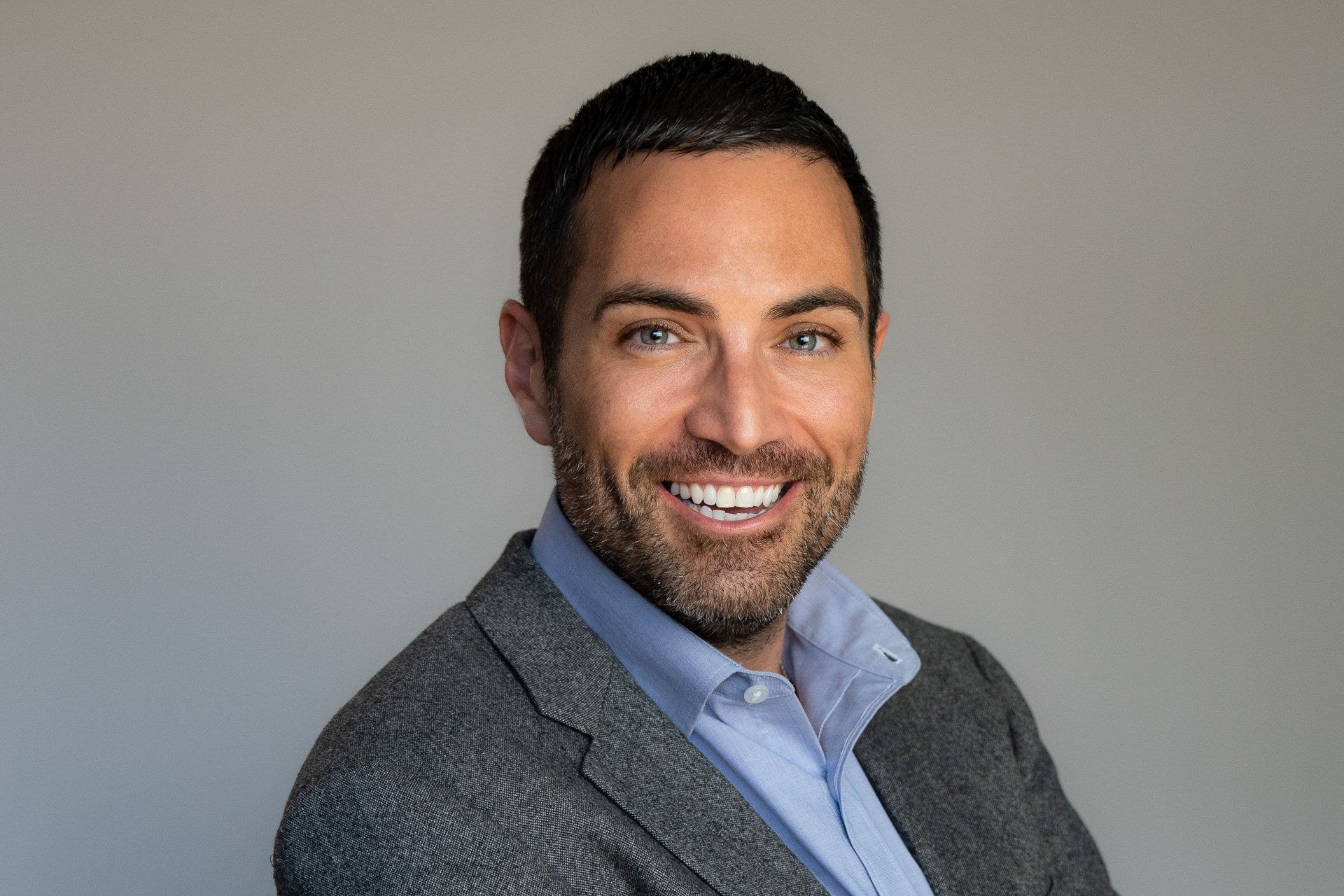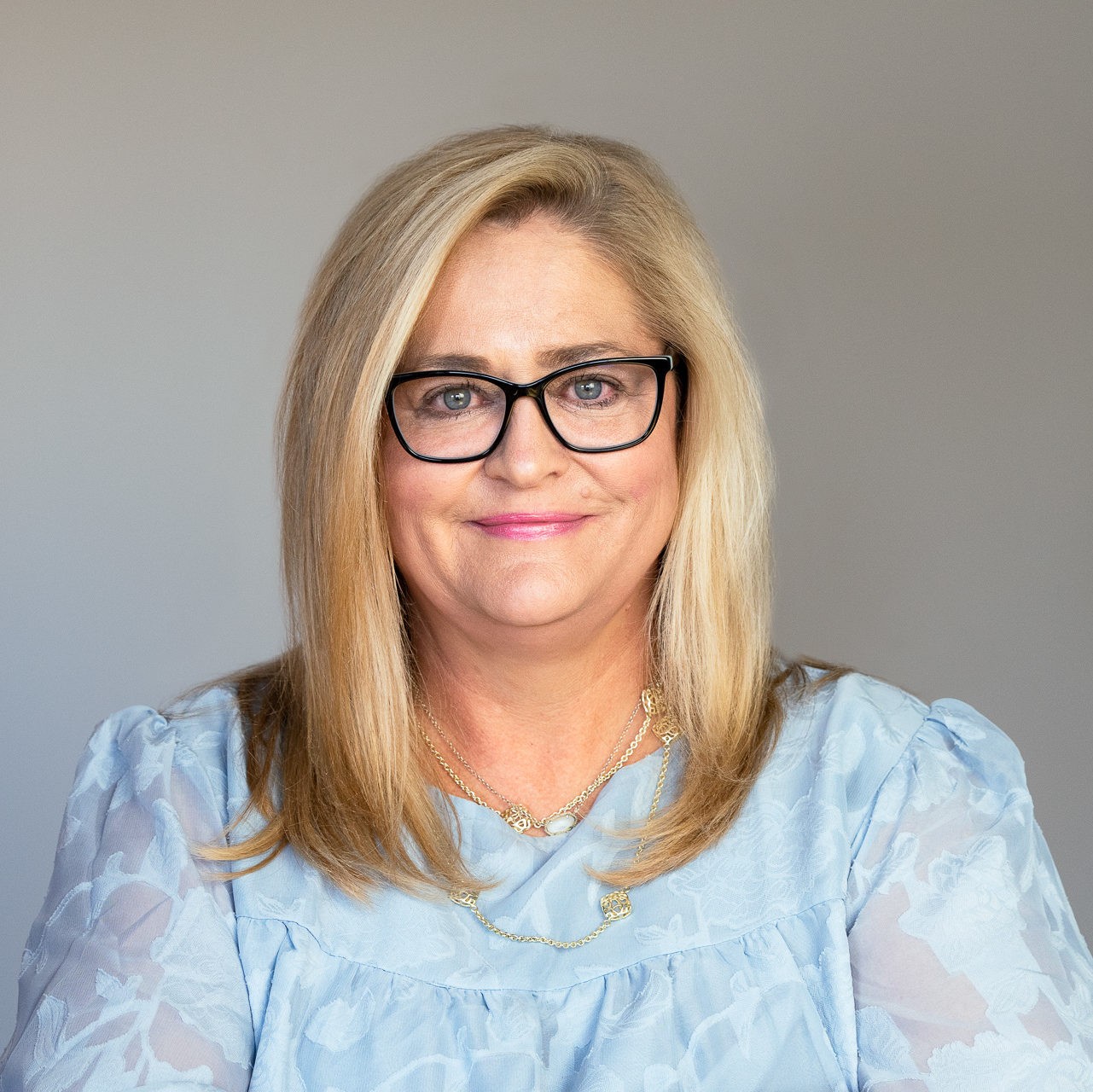Announcing round 12 of COVID-19 grants totaling more than $6.3 million

When we first launched the Center for Disaster Philanthropy’s COVID-19 Response Fund in March 2020, we didn’t anticipate that we would still be experiencing the effects of what seems to be a never-ending pandemic more than two years later. With this 12th round of grant funding, the needs are different than they were in the beginning. But we continue to note that the COVID-19 pandemic crisis has laid bare the systemic inequities that existed long before. And we are grateful to be able to partner with programs and organizations that support addressing those inequities to provide a full and equitable recovery across the globe.
Domestic COVID-19 Response Fund Grants
In the United States, we identified that, for a full recovery from the pandemic, our grant funding must help address the inequities that its lingering effects have exacerbated, including:
- School-aged children and youth suffering significant learning loss from a lack of equitable access to resources and lack of continuity of learning.
- Minority, immigrant, refugee, communities of color and other marginalized communities where virus surges continue amid little to no encouragement to get vaccinated and limited access to accurate and appropriate information and resources.
- Domestic workers, health care workers, farmworkers, food service workers, frontline workers or those labeled as “essential” are still suffering from what was laid bare by this pandemic. They are essential to our lives, but they are not appropriately supported or paid wages that reflect their essential status. This has resulted in burnout, stress and anxiety among these groups.
- Families are struggling to manage their day-to-day lives as equitable access to child care remains a significant concern. Schools are not managing pandemic surges well, and many parents, especially mothers, have been forced to leave their jobs and lose income to care for and protect their young children in these trying times.
- Stress, anxiety, burnout and trauma continue to affect all of us, but especially those already facing the layered traumas and effects of marginalization by policies put in place that exacerbate their marginalization.
With this in mind, we provided $1,875,000 to support the following organizations and projects:
- Child Care Aware of America – $300,000 to support the long-term COVID-19 recovery of child care providers and the families they serve by addressing providers’ most pressing economic, mental health and disaster response challenges.
- DonorsChoose – $275,000 to equip teachers and students at Equity Focus Schools with classroom resources needed to combat learning loss, support student mental health and face other challenges created by the pandemic.
- The OUT Foundation – $250,000 to help address systemic and cultural barriers faced by the LGBTQ+ community that have been made worse during the COVID-19 pandemic. Their expanded program addresses the negative impact of the pandemic on the LGBTQ+ community, specifically by removing barriers to participation in health, fitness and well-being activities.
- Partners in Health – $300,000 to build, strengthen and sustain a resilient public health workforce in locations disproportionately impacted by COVID-19. This program will invest in the workforce critically needed to improve health outcomes and restore trust in public health systems, from community-health workers to public health department staff, and will in turn amplify lessons learned to advocate for transformative national workforce policy change.
- Teach For America – $250,000 to support the Ignite Fellowship program that builds on Teach For America’s 30 years of experience cultivating talent and partnering with communities across the country to help students overcome systemic barriers to education exacerbated by the pandemic. Ignite brings exceptional, equity-minded leaders into classrooms virtually to add immediate value for students’ academic and social-emotional well-being, while creating shifts towards the future of equitable learning.
- Vibrant Emotional Health – $500,000 from multiple CDP funding streams, including the COVID-19 Response Fund and the CDP Disaster Recovery Fund to offer robust and accessible virtual and in-person best practices training to prepare communities and nonprofit organizations to respond in the wake of a natural or human-caused disaster. Vibrant’s Crisis Emotional Care Team’s focus will be with nonprofit organizations that may not be disaster response organizations but have engaged in providing support in disasters to meet the needs of the community, working in faith-based agencies, schools, government sites and local gathering spaces.
International COVID-19 Response Fund Grants
We know that COVID-19 has severely compounded existing inequities and vulnerabilities, amplified needs and further exacerbated existing problems around the world. such as inadequate access to health care, food insecurity, protection, and economic loss and deprivation. Nowhere is this truer than in fragile and complex humanitarian settings. We need only look at the case of the near-eradicated Polio — also a preventable disease with a vaccine, spread more easily where there is poor hygiene and sanitation conditions – and the fact that the last stand for this disease is one of the most fragile, complex, remote, insecure and hard-to-reach places on the planet – the border areas of Pakistan and Afghanistan. So, we embarked on our analytical quest with this in mind.
We analyzed a number of established global indices and data sets to arrive at a list of the countries we believe have the:
- Greatest humanitarian needs.
- Greatest current and future disaster risk (from Conflict, COVID and Climate – the 3 Cs).
- Poorest and most vulnerable populations.
- Greatest risk to COVID infection.
- Least ability to access quality health care, including vaccinations, treatment and medical advice.
This blog post explains our methodology and approach in detail and lists the 16 countries we have prioritized for COVID funding in 2022.
Given the intention to focus this year’s funding on reaching the most vulnerable and at-risk populations, we narrowed the thematic focus to the most pressing needs emerging from our analysis. That led us to prioritize the following themes for 2022:
- The ongoing health-related impacts of COVID-19.
- Economic impacts including loss of livelihoods and rising food insecurity.
- Despite some improvements compared to 2020, the World Bank estimated that 97 million more people were living in poverty in 2021 compared to 2019, due to the repercussions of the COVID-19 pandemic. And today, it is estimated that 660 million people worldwide may face hunger in 2030, 30 million more people than if the pandemic had not occurred.”
- Early Childhood Development
- During the COVID-19 pandemic, even fewer children are accessing pre-school as programs close, placing them at risk of missing out on critical early learning opportunities, and negatively impact them for the rest of their lives.
- Disaster Risk Reduction and Resilience programs
- The pandemic is unlikely to be over soon, and we fully expect further waves and new variants to emerge. It is important to focus on building resilience to future shocks, including COVID.
With this in mind, we provided $4,514,500 to support the following organizations and projects:
- Action Against Hunger – $450,000 grant from CDP (Haiti Recovery Fund and COVID-19 Fund) aimed at mitigating the complex and interrelated needs resulting from the compounded impact of the COVID-19 pandemic and the Haiti earthquake of August 2021 on vulnerable communities. This program will benefit 106,871 vulnerable affected people through rehabilitation and improving access to basic health, water, sanitation and hygiene, and nutrition services.
- ActionAid International and Feminist Humanitarian Network – $165,000 implemented by the Feminist Humanitarian Network of women’s rights organizations operating across Nigeria, Ethiopia, Somalia, South Sudan and Venezuela for COVID-19 related programs. These organizations will work directly with vulnerable communities (women, children, disabled, etc.) on improving health, food security and economic outcomes of those affected, many of whom are experiencing protracted crises, including conflict and drought, the effects of which are compounded by COVID-19.
- Americares – $250,000 to equip frontline health providers in Colombia, serving Venezuelan migrants, refugees and underserved host community members, with the knowledge and skills needed to support the COVID-related mental health and psychosocial needs of patients.
- CARE – $375,000 to advance an equitable and resilient recovery from the impacts of COVID-19 in Mali by addressing the multidimensional challenges that especially and disproportionately burden vulnerable populations, such as women, girls, internal displaced people and those living with disabilities. The project aims to reach 180,000 people and, using a variety of community-led approaches, will increase the ability of these vulnerable groups to pursue dignified livelihood activities through women’s savings groups, access enough nutritious food, improve COVID infection and prevention practices, and access adequate protection services.
- Care and Health Program (CHP) – $75,000 to Cameroonian national NGO CHP that will ensure that 150 community health workers from community-based organizations working with key marginalized populations are trained on awareness, surveillance and detection of suspected cases of COVID-19 in the community and in the appropriate protocols regarding community case management and referral to treatment sites.
- Concern Worldwide – $100,000 to support Afghan communities in disaster-prone rural areas of Takhar province in the Northeast region of Afghanistan in building resiliency to withstand the ongoing effects of the COVID-19 pandemic and recover from the economic impacts of COVID-19 by increasing access to water back to pre-pandemic levels.
- Humanity & Inclusion – DRC – $250,000 to support the community-based prevention of Covid-19 and good hygiene practices and to promote access to health care for the most vulnerable people through the strengthening of women’s clubs in the communes of Bumbu and Selembao in Kinshasa, Democratic Republic of Congo.
- Humanity & Inclusion – Somalia – $250,000 for work in Somalia/Somaliland to promote health equity, reinforce COVID recovery and ensure preparedness for future waves and health emergencies – by ensuring inclusive COVID-19 awareness-raising among persons with disabilities and other at-risk groups, strengthening inclusive health systems — leaving no one behind and promoting inclusive prevention and recovery for all.
- International Medical Corps – $250,000 to improve COVID-19 vaccine access in remote indigenous communities in the Cedeño municipality of Bolívar State in Venezuela, by providing logistics support to transport and store vaccines; donating equipment to hospitals to store vaccines; strengthening the capacity of local vaccinators; and raising awareness about COVID-19 vaccines through community activities.
- International Rescue Committee (IRC) – $500,000 from CDP’s COVID-19 Response Fund ($350,000) and Global Recovery Fund ($150,000) to address the secondary economic impacts of COVID-19 and drought on vulnerable households and communities and build community and local institutions’ resilience against future disaster risk and food insecurity. IRC will achieve this by improving the capacities of COVID, drought and conflict-affected smallholder farmer households (especially women and youth), communities and their institutions to respond to and proactively mitigate disaster risks and adapt to long-term trends of food insecurity (COVID-19, inflation and climate trends).
- Mercy Corps – $750,000 from CDP’s COVID-19 Response Fund ($375,000) and Global Recovery Fund ($375,000) to respond to the devastating socio-economic impacts from COVID-19 and compounding effects of the severe drought in the Horn of Africa. The program will kickstart recovery of livestock-based livelihoods by supporting vulnerable pastoralist households (emphasizing females and youth) and critical livestock market input and service providers. It will reinforce linkages between them by adopting a market-based, systems approach. Beyond the program, Mercy Corps will conduct research to develop the body of evidence on outcomes of activities focused on enhancing resilience in the Horn of Africa.
- MSI Reproductive Choices – $250,000 to reduce the adverse health impacts of COVID-19 in Afghanistan. MSI Afghanistan will raise awareness about the continued importance of COVID-19 and distribute hygiene kits to limit further spread of the virus. It will also build the capacity of 15 public sites to deliver quality reproductive health services, a critical gap that has been exacerbated by COVID-19, averting critical supplies and resources to fight the pandemic.
- Oxfam – $250,000 to mitigate the risks of spread of COVID-19. The program will reach 5,000 people, primarily refugees, migrants and returnees from Venezuela and host communities in the rural Wayuu indigenous communities in the Department of La Guajira, Colombia. In collaboration with Fuerza de Mujeres Wayuu, the project is intended to improve basic services, increase access to water, promote good hygiene practices, ensure better protection and sexual and reproductive health of girls, and increase resiliency.
- Partners in Health – $250,000 to pilot, in collaboration with partner organization Zanmi Lasante, a new Test and Treat approach in Haiti (targeting a catchment population of 600,000) that will establish a flexible and replicable primary care model for growth in rapid testing and corresponding outpatient treatment for COVID-19 that can reduce transmission, hospitalization and death in Haiti.
- Project HOPE – $500,000 to extend the successful mental health and resilience training for COVID-19 frontline health workers in 11 complex humanitarian emergency countries. Leveraging existing resources developed with CDP support, Project Hope will scale the program to reach an additional 16,000 health care workers across the following priority fragile and complex humanitarian context countries: Cameroon, Chad, Colombia, Haiti, Ethiopia, Mali, Nigeria, South Sudan, Sudan and Yemen.
- Save the Children – $750,000 for the Local Response Pooled Fund in South Sudan, which is a new, tried and tested pooled funding mechanism for international donors to pay into, and which transfers resources and decision-making power and authority over funding decisions to local actors in South Sudan. The project will fund 11 South Sudanese organizations to meet the most critical COVID-19-related humanitarian needs in the most remote, hard-to-reach and needy areas in South Sudan, and plans to reach around 48,000 vulnerable, at-risk affected people across the country.

